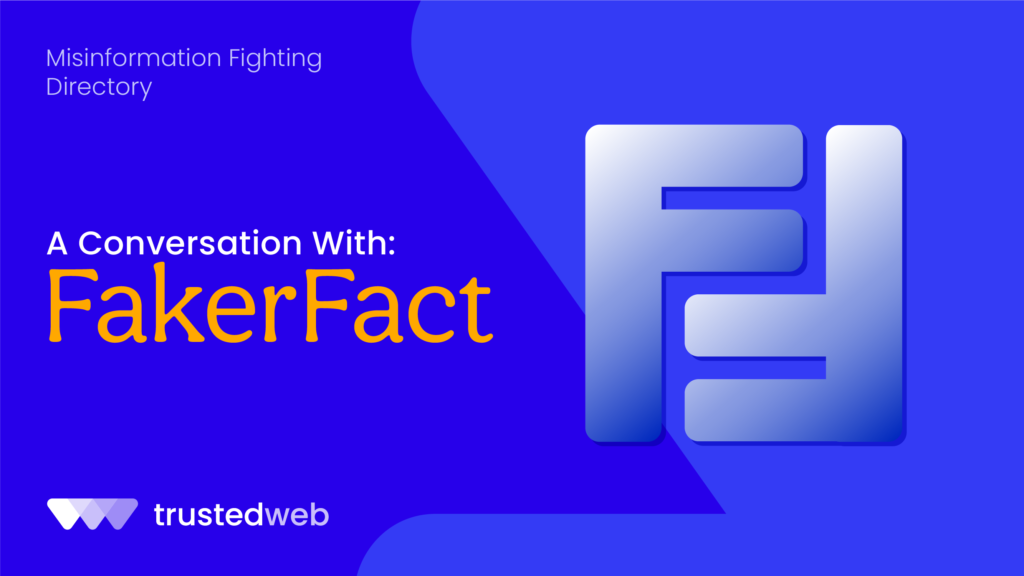Misinformation Fighting Directory: A Conversation With FakerFact
This article is part of our new Misinformation Fighting Directory where we interview organizations and projects that have built solutions or launched initiatives to help fight fake news and misinformation online.
The following is an interview we recently had with FakerFact.

Tell us about the team behind your project:
FakerFact was developed by a team of ML Engineers and Scientists based primarily in California and Colorado. Contributors to FakerFact have included Jeff Dean, Jacob Baumbach, Hollis Nolan, James Winegar, Michael Mansour, Sy Hwang, and Lalit Verma.
What’s the mission behind your organization?
Fear, anger, sensationalism don’t mix well with getting to the truth. The mission of FakerFact is to empower the public with tools to isolate just the facts.
How do you help fight misinformation and fake news?
Walt (our AI Algorithm) will never tell you if an article is True or Not. That’s not Walt’s job.
Our philosophy at FakerFact is that the best judge of Truth from Fiction is you. Walt’s job is to read what you give us carefully and to let you know what kind of article it is. Is the article biased or does it give a measured assessment? Is the article written in a way that focuses on facts, or is it written with an agenda? Does the writing style use manipulative persuasion or is written in a way that provides you with the information to draw your own conclusions?
If something sounds fishy about an article Walt will tell you it sounds fishy, and leave it up to you to do more research to find multiple sources of information that focus on the facts. Walt is not a magic truth machine, but you can use Walt to make it easier to sort out the truth yourself.
What is the impact of misinformation online to society?
It has become very easy for us to share information with one another. We at FakerFact think this is great! However, this free flow of information has also made it easier for some authors to mix less credible stories in with factual articles. Too much of what we can read and learn from on the internet is not always about figuring out what is true or sharing knowledge.
Instead of focusing on just the facts, some articles focus more on tapping into natural human reactions to how information is presented, not what the information is telling us. At FakerFact, we want to enable readers to detect when an article is focused on credible information sharing vs. when the focus is on manipulating or influencing the reader by means other than the facts.
What’s the future of misinformation online?
The threat of misinformation online will unfortunately continue. However, it has been encouraging to see the development of so many efforts to combat this threat. It is our hope that consolidation and improvement on the various approaches over the next several years will serve to render the potential damage done by online misinformation manageable.
